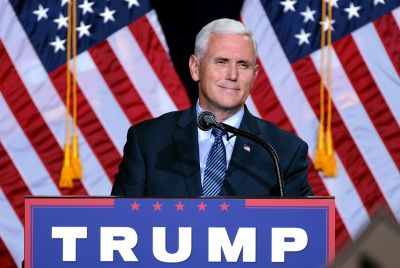Asian shares rebound, watching Dubai
Asian stocks recovered after last week's steep sell-off over the Dubai debt crisis as investors nerves steadied on hopes that the fallout of a potential default will be limited.
Banking shares, which bore the brunt of the selling on Friday on worries about banks' exposure to Dubai World and property group Nakheel, were at the forefront of Monday's rebound recouping some of last week's losses.
South Korean stock and currency markets received an additional boost from the government's pledge it will stay vigilant while a marginal pullback toward close at Wall Street also helped the recovery.
The dollar surrendered some of last week's gains against other major currencies and the yen retreated from a 14-year high hit last week. The two units rose sharply last week as fears of a possible Dubai debt default led to unwinding of carry trades.
Our feeling has been that this would not lead to contagion, said Mark Konyn who oversees about $11 billion as Asia-Pacific chief executive of RCM, a unit of Allianz Global Investors.
Investors were worried that a contagion will lead to derisking of portfolios globally and that emerging markets will suffer disproportionately in any after-shock, he said.
AUTHORITIES SOOTHE NERVES
Investors were also placated by authorities' moves to prevent any major fallout from a looming debt default by two of Dubai's flagship firms.
Financial markets shuddered last week after Dubai said it would ask creditors of state-owned Dubai World and Nakheel, the builder of its palm-shaped islands, for a standstill agreement as a first step toward restructuring billions of dollars of debt.
On Sunday, the United Arab Emirates offered banks emergency support to ease fears in financial markets although analysts say the move to inject liquidity into Dubai's banks by the central bank, together with promises by neighboring city-state Abu Dhabi to provide selective support, was the bare minimum they could do.
In Seoul, Vice Finance Minister Hur Kyung-wook said the government would maintain a daily monitoring system until the Dubai incident was resolved.
South Korean markets have been especially sensitive to international financial instability mainly because the highly leveraged local banking system is heavily exposed to the global credit market situation.
Wall Street's truncated losses also gave investors some hope the flight to less risky assets seemed to be subsiding. U.S. stocks recovered slightly toward close after a slide of more than 2 percent at the open.
The fall in U.S. stocks wasn't as bad as expected and that has lifted one of the biggest Dubai-related concerns, given that worries about that don't seem to be as bad as they once were, said Masayoshi Okamoto, head of dealing at Jujiya Securities.
The MSCI index of Asia Pacific stocks traded outside Japan <.MIAPJ0000PUS> rose 2.8 percent while the Thomson Reuters index of regional shares <.TRXFLDAXPU> was 2.6 percent higher.
BANKS LEAD REBOUND
Leading the recovery were bank and construction shares, which were the big losers last week as investors cut exposure to sectors most vulnerable to economic uncertainty.
HSBC Holdings <0005.HK>, which fell 7.59 percent to close at a three-week low on Friday, climbed 3.79 percent to HK$90.30. Standard Chartered <2888.HK>, which fell as much as 8.9 percent to a seven-week low last Friday, rose 5.39 percent to HK$195.50.
Britain's HSBC
The MSCI index of banking shares in Asia Pacific outside Japan <.MIAPJFN00PUS> was up 2.9 percent while the materials index <.MIAPJMT00PUS> was 2.7 percent.
Japan's Nikkei average <.N225>, which hit a four-month closing low last Friday, was up 2.4 percent as the yen's fall from a 14-year high against the dollar also lifted exporters.
Still investors are on the edge and are now closely monitoring developments in Dubai, while also gauging the likely intense selling pressure in UAE markets which reopen later on Monday in the first post-holiday trading.
UAE markets are expected to drop by their 10 percent daily maximum, lead by builders and banks, analysts said.
We want to see a little more information before we conclude that this is contained and that markets are back on even keel, said RCM's Konyn.
(Additional reporting by Elaine Lies in TOKYO; Editing by Kazunori Takada)
© Copyright Thomson Reuters 2024. All rights reserved.





















